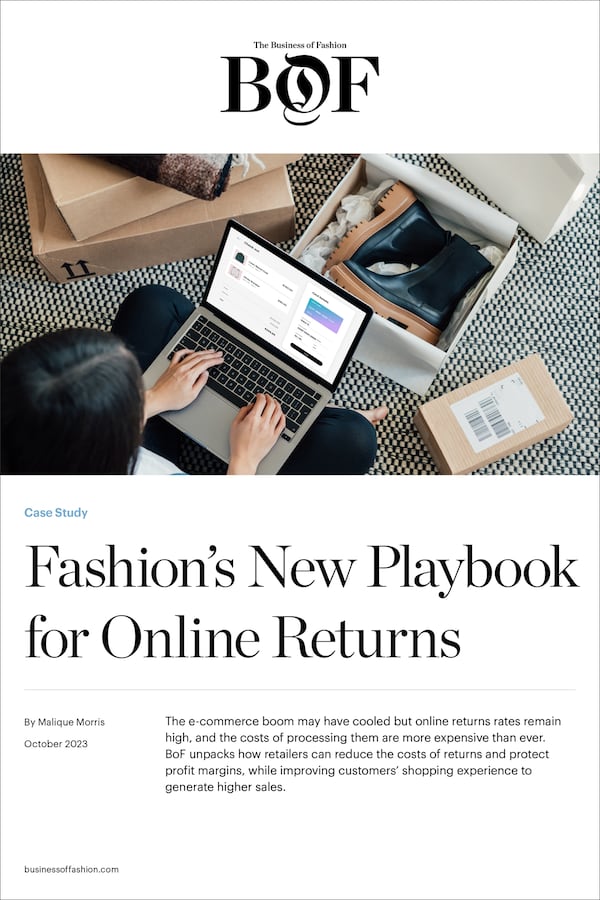The Business of Fashion
Agenda-setting intelligence, analysis and advice for the global fashion community.
Agenda-setting intelligence, analysis and advice for the global fashion community.

Created by BoF’s journalists and editors, in conjunction with our wider network of leading fashion creatives, thought-leaders, and innovators, Masterclasses are in-depth webinars with supporting resources, designed to deliver key learning outcomes on critical industry topics.
Watch on demand here:
Even since Amazon introduced free two-day shipping for Amazon Prime members in 2005, providing shoppers with a free return service has become table stakes for retailers.
But free returns are a major headache for retailers who have to contend with high shipping costs — which have increased since the pandemic — and dedicate precious resources to sorting inbound packages. Today, more brands are revising their returns policies and are turning to startups specialising in processing returns more effectively.
On the latest BoF Professional Masterclass, BoF deputy editor Brian Baskin, and Malique Morris, BoF’s direct-to-consumer correspondent are joined by Ray Marciano, managing director at Accenture, Anisa Kumar, chief customer officer at returns experience platform Narvar, and Rachel La Rocca, fashion senior director at online marketplace Mercado Libre, to discuss how businesses of different sizes and functions can manage their return services.

Exclusive to BoF Professional members.
The e-commerce boom may have cooled but online returns rates remain high, and the costs of processing them are more expensive than ever. BoF unpacks how retailers can reduce the costs of returns and protect profit margins, while improving customers’ shopping experience to generate higher sales.
The e-commerce boom may have cooled but online returns rates remain high, and the costs of processing them are more expensive than ever. BoF unpacks how retailers can reduce the costs of returns and protect profit margins, while improving customers’ shopping experience to generate higher sales.
Nordstrom, Tod’s and L’Occitane are all pushing for privatisation. Ultimately, their fate will not be determined by whether they are under the scrutiny of public investors.
The company is in talks with potential investors after filing for insolvency in Europe and closing its US stores. Insiders say efforts to restore the brand to its 1980s heyday clashed with its owners’ desire to quickly juice sales in order to attract a buyer.
The humble trainer, once the reserve of football fans, Britpop kids and the odd skateboarder, has become as ubiquitous as battered Converse All Stars in the 00s indie sleaze years.
Manhattanites had little love for the $25 billion megaproject when it opened five years ago (the pandemic lockdowns didn't help, either). But a constantly shifting mix of stores, restaurants and experiences is now drawing large numbers of both locals and tourists.